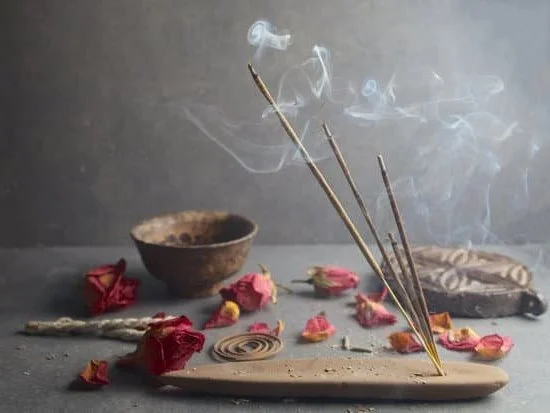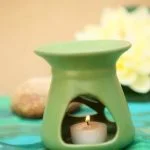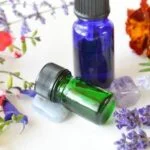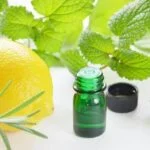How effective is using water aromatherapy and massage during labor? The concept of utilizing water aromatherapy and massage techniques during childbirth is becoming increasingly popular as women seek natural and holistic methods to support their labor experience.
The importance of relaxation and comfort during childbirth cannot be understated, and these techniques aim to provide just that. In this article, we will explore the benefits of water aromatherapy and massage during labor, different techniques for their implementation, personal experiences of women who have used these methods, potential risks and considerations, and the overall effectiveness of incorporating them into the childbirth process.
Childbirth can be a physically and emotionally challenging experience for many women. Water aromatherapy involves using essential oils in warm water for relaxation, while massage aims to relieve pain and promote relaxation during labor. Both techniques play a significant role in reducing stress, anxiety, and discomfort associated with childbirth. Research has shown promising results on the effectiveness of water aromatherapy and massages in improving the birthing experience for women.
The soothing effects of water aromatherapy combined with the relief provided by massage can greatly enhance a woman’s comfort level during labor. For pregnant women interested in exploring alternative methods for labor support, understanding the benefits and potential impact of these techniques is crucial. Throughout this article, we will delve into how water aromatherapy and massage can positively influence the childbirth experience for expecting mothers.
Benefits of Water Aromatherapy During Labor
Water aromatherapy during labor offers numerous benefits for expectant mothers, providing a natural and holistic approach to easing the discomfort and stress associated with childbirth. The use of essential oils in water aromatherapy has been known to have soothing and calming effects on women in labor, promoting relaxation and reducing anxiety.
Research has shown that the inhalation of certain essential oils can positively impact mood and emotional well-being, making it an effective method for managing the intense emotions experienced during labor.
The benefits of water aromatherapy during labor can be summarized as follows:
- Aromatherapy helps in reducing stress and anxiety levels during labor, creating a more calming environment for the expectant mother.
- Certain essential oils have been found to promote relaxation, which is crucial for managing pain and discomfort during childbirth.
- The use of aromatherapy can enhance the overall experience of childbirth, contributing to a more positive and empowering birthing process.
Incorporating water aromatherapy into the labor environment can be achieved through various techniques such as using diffusers or adding essential oils to a warm bath. Some recommended essential oils for labor include lavender, chamomile, and ylang-ylang, known for their calming and pain-relieving properties. Creating a tranquil atmosphere with soft lighting, soothing music, and comforting scents can significantly contribute to the effectiveness of water aromatherapy during labor.
As part of a comprehensive approach to supportive care during childbirth, the use of water aromatherapy in combination with massage techniques can further enhance the overall experience for expectant mothers. Both methods aim to provide comfort, alleviate pain, reduce stress, and promote relaxation throughout the stages of labor.
Benefits of Massage During Labor
Relieving Pain and Discomfort
Massage during labor can be highly effective in alleviating the physical pain and discomfort that often accompanies childbirth. The gentle pressure and soothing strokes of massage can help to ease muscle tension, reduce cramping, and promote relaxation.
Research has shown that women who receive massage during labor report lower levels of pain and greater overall comfort compared to those who do not receive massage. This natural method of pain relief can be a valuable tool for women seeking alternatives to medication during labor.
Promoting Relaxation and Easing Tension
In addition to providing physical pain relief, massage during labor also plays a crucial role in promoting relaxation and easing emotional tension. The calming effects of massage can help laboring women to feel more at ease and better equipped to cope with the challenges of childbirth.
By reducing stress and anxiety, massage creates a more supportive environment for both the mother and her support team. Furthermore, the release of endorphins through massage can contribute to an overall sense of well-being, making the childbirth experience more positive and empowering.
Emotional and Physical Benefits
The benefits of massage extend beyond the physical realm, offering meaningful emotional support for women in labor. The nurturing touch provided during massage can foster a sense of connection, trust, and security for women as they navigate the intensity of childbirth. This emotional support is especially important for promoting a positive birthing experience and enhancing feelings of empowerment and confidence.
Additionally, research has indicated that receiving compassionate touch through techniques such as massage can facilitate a smoother progression through labor, potentially reducing the need for medical interventions. Overall, the combination of physical pain relief, emotional support, and enhanced coping abilities makes massage an invaluable component of holistic labor support.
Water Aromatherapy Techniques
Water aromatherapy involves the use of essential oils in combination with warm water to create a soothing and relaxing environment during labor. This technique has been found to be highly effective in reducing stress and anxiety, promoting relaxation, and providing comfort to laboring women. The gentle scent of essential oils combined with the calming effect of warm water can significantly enhance the overall childbirth experience.
Different Methods of Incorporating Water Aromatherapy
There are various ways to incorporate water aromatherapy during labor. One common method is to add a few drops of essential oils to a warm bath or shower. The steam from the warm water helps to disperse the aroma throughout the room, creating a tranquil and peaceful atmosphere. Another popular technique is using a diffuser to release the fragrance of essential oils into the air, providing continuous aromatherapy benefits throughout the labor process.
Recommended Essential Oils for Water Aromatherapy
When using water aromatherapy during labor, it is important to choose safe and gentle essential oils that are suitable for pregnant women. Some commonly recommended essential oils for labor include lavender, chamomile, frankincense, and mandarin. These oils are known for their calming and relaxing properties, making them ideal choices for promoting comfort and peace during childbirth.
Tips for Creating a Relaxing Environment for Water Aromatherapy
To maximize the effectiveness of water aromatherapy during labor, it is crucial to create a serene and tranquil environment. This can be achieved by dimming the lights, playing soft music, and using comforting visuals such as candles or natural scenery. Additionally, ensuring that the room is comfortable temperature-wise plays an important role in setting the stage for a positive birthing experience.
Overall, integrating water aromatherapy techniques into childbirth can contribute significantly to easing both physical discomforts as well as emotional stress that may accompany labor. This natural approach provides an opportunity for mothers-to-be to experience calmness amidst such an intense situation.
Massage Techniques During Labor
Water aromatherapy and massage are both popular techniques used during labor to promote relaxation, ease discomfort, and provide emotional support for women in labor. In this section, we will focus on the effectiveness of massage techniques during labor and how they can positively impact the childbirth experience.
Massage has been recognized as a beneficial form of pain relief and comfort during labor. It helps in reducing anxiety, promoting relaxation, and easing tension in the body. By stimulating the release of endorphins, which are natural pain-relieving hormones, massage can contribute to a more positive and less stressful birthing experience.
There are various massage techniques that can be utilized during different stages of labor, such as effleurage for early labor to provide soothing strokes and counter-pressure for active labor to alleviate back pain. Partner involvement in providing massage support has also been shown to strengthen the bond between couples during childbirth. Communication and consent are crucial when providing labor massage, ensuring that women feel supported and comfortable throughout the process.
Personal Experiences
Water aromatherapy and massage during labor have been widely praised for their effectiveness in promoting relaxation, reducing stress, and providing comfort to women in labor. Many women have shared their positive experiences with these techniques, highlighting the benefits they experienced during childbirth.
Here are some personal accounts of women who have utilized water aromatherapy and massage during labor:
- One mother described how the use of lavender essential oil in a warm bath helped her to stay calm and relaxed during contractions. She found that the soothing scent of lavender eased her anxiety and made the pain more manageable.
- Another laboring woman shared how her partner’s gentle massage on her lower back significantly relieved the intensity of her labor pains. The rhythmic pressure applied by her partner’s hands provided her with much-needed relief and comfort.
- A first-time mother expressed how the combination of water aromatherapy and massage created a serene ambiance that allowed her to focus on her breathing and remain composed throughout the duration of her labor.
These personal experiences illustrate how effective water aromatherapy and massage can be in enhancing the birthing experience for women. Their positive outcomes emphasize the importance of incorporating these holistic techniques into childbirth practices.
It is clear that many women have found water aromatherapy and massage to be beneficial in managing discomfort, promoting relaxation, and providing emotional support during labor. As such, it is essential for expectant mothers to consider these natural approaches as part of their birth plan.
Potential Risks and Considerations
When considering the use of water aromatherapy and massage during labor, it is essential to take into account any potential risks or contraindications associated with these techniques. While both water aromatherapy and massage are generally safe and beneficial for most pregnant women, it is crucial to be aware of certain precautions to ensure a positive experience.
One important consideration is the use of essential oils in water aromatherapy. Not all essential oils are safe for use during pregnancy, and some may even cause adverse effects. It is recommended to consult with a qualified aromatherapist or healthcare provider to identify which essential oils are suitable for use during labor. Additionally, ensuring proper dilution of essential oils and using them in well-ventilated areas can help minimize any potential risks.
Another important aspect to consider is the risk of infection when using water for relaxation during labor. If a woman chooses to utilize a birthing pool or tub for water aromatherapy, it is crucial to maintain strict hygiene and cleanliness standards. This includes regularly changing the water, disinfecting the tub, and monitoring water temperature to prevent bacterial growth. By adhering to these safety measures, the risk of infection can be minimized.
In terms of massage during labor, one consideration is the possibility of exacerbating certain medical conditions or complications. Women with specific health concerns such as blood clots or skin infections should seek guidance from their healthcare provider before undergoing any form of labor massage. In addition, training and communication are crucial when involving a partner or support person in providing massage during labor, as improper techniques could potentially lead to discomfort or injury.
Lastly, it is important for expectant mothers to discuss their intentions of incorporating water aromatherapy and massage with their prenatal care provider. Healthcare professionals can provide personalized advice based on individual medical history and current pregnancy conditions, ensuring that these natural techniques are used safely and effectively.
| Potential Risks | Considerations |
|---|---|
| Essential oil safety | Consultation prior to use |
| Risk of infection | Hygiene standards in birthing pools |
| Massage complications | Consultation for specific health concerns |
Conclusion
In conclusion, the use of water aromatherapy and massage during labor has been shown to be highly effective in promoting relaxation and comfort for women in childbirth. The soothing and calming effects of water aromatherapy, coupled with the pain-relieving and tension-easing benefits of massage, make these techniques valuable tools for managing the challenges of labor. Research findings have supported the positive impact of water aromatherapy and massage in reducing stress, anxiety, and physical discomfort during childbirth.
The personal experiences and testimonials of women who have used water aromatherapy and massage during labor further attest to the effectiveness of these techniques. Their accounts emphasize the significant difference that these holistic methods made in their childbirth experience, highlighting the importance of providing a supportive and tranquil environment for women in labor.
It is evident that creating a relaxing atmosphere through water aromatherapy and massage not only contributes to physical comfort but also plays a crucial role in addressing emotional needs during this challenging time.
In light of these considerations, it is important to encourage pregnant women to explore natural and holistic methods for labor support such as water aromatherapy and massage. These techniques offer valuable benefits without the potential risks associated with medical interventions.
However, it is essential for expecting mothers to consult with their healthcare providers before incorporating water aromatherapy and massage into their birth plan to ensure a safe and personalized approach. Overall, the positive impact of relaxation and comfort on the childbirth experience cannot be understated, making water aromatherapy and massage valuable options for women seeking support during labor.
Frequently Asked Questions
Does Aromatherapy Work for Labour?
Aromatherapy has been found to be effective in helping women relax and manage pain during labor. Certain scents like lavender or peppermint can provide a sense of calm and ease discomfort.
How Effective Is Clary Sage to Bring on Labour?
Clary sage is believed to be effective in stimulating contractions and bringing on labor, but it should only be used under the guidance of a healthcare professional. Its effectiveness can vary from person to person.
What Is the Recommended Practice for the Use of Essential Oils in Labor?
The recommended practice for using essential oils in labor is to dilute them properly and use them sparingly. It’s important to consult with a qualified aromatherapist or healthcare provider before using essential oils during labor to ensure safety for both the mother and baby.

Are you looking for a natural way to improve your health and wellbeing?
If so, aromatherapy may be the answer for you.





